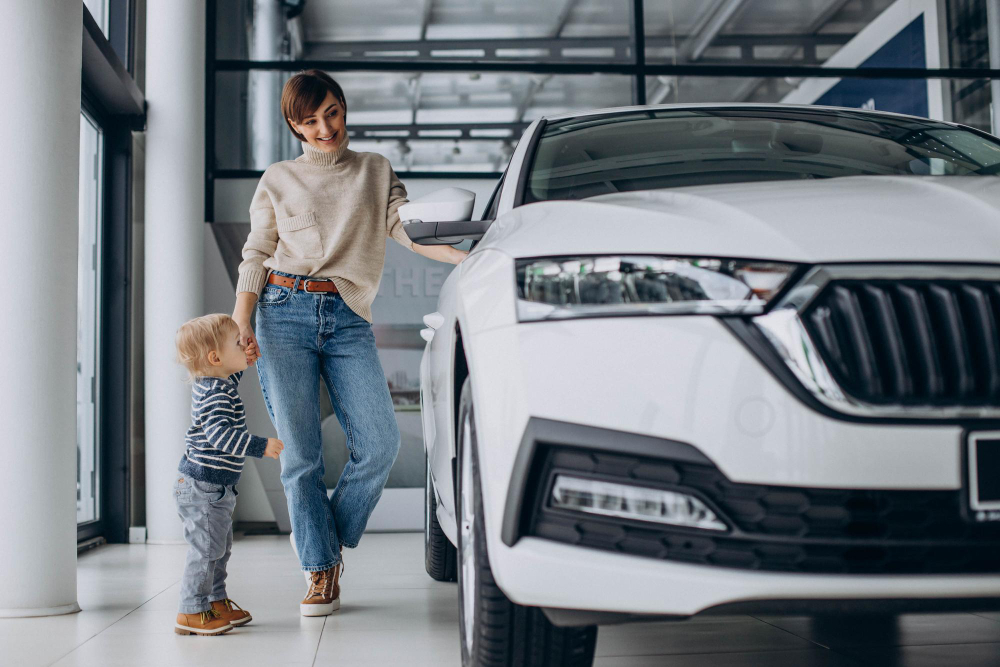Navigating the Road: The Pros and Cons of Buying a Used Car vs. a New Car
Buying a car is a significant decision that involves various considerations, and one of the primary choices you'll face is whether to go for a new or
Navigating the Road: The Pros and Cons of Buying a Used Car vs. a New Car
Buying a car is a significant decision that involves various considerations, and one of the primary choices you'll face is whether to go for a new or used vehicle. Each option comes with its own set of advantages and disadvantages, making the decision-making process crucial. In this article, we will explore the pros and cons of buying a used car versus a new car to help you make an informed choice.
Pros of Buying a Used Car
Cost Savings
One of the most apparent advantages of buying a used car is the cost savings. Used cars generally have a lower initial price tag compared to their new counterparts.Depreciation Considerations:New cars typically experience a significant depreciation in value during the first few years. When you buy a used car, the previous owner has absorbed this initial depreciation, allowing you to avoid the steepest part of the depreciation curve.
Lower Insurance Costs
Insurance premiums are often lower for used cars since their market value is lower than that of new cars. This can contribute to long-term savings.
Proven Reliability
Used cars have a track record of performance, allowing you to gauge their reliability based on reviews, ratings, and the experiences of previous owners.
Cons of Buying a Used Car
Limited Warranty
Used cars typically come with a limited or no warranty, meaning you may have to cover repair costs out of pocket. This can be a concern if unexpected issues arise.
Advanced Technology:
Newer models often feature the latest technological advancements in safety, fuel efficiency, and connectivity. If having the latest tech is a priority, a used car may not be the best choice.
Limited Selection:
Finding a used car with specific features, colors, or mileage requirements can be challenging. The used car market is subject to availability, and your choices may be limited.
Pros of Buying a New Car
Latest Technology and Features
New cars come equipped with the latest safety features, entertainment systems, and advancements in fuel efficiency. If staying on the cutting edge is important to you, a new car may be the better option.
Warranty Coverage
New cars typically come with comprehensive warranty coverage, providing peace of mind and potential cost savings on repairs during the initial years of ownership.
Customization Options.
When buying new, you can often choose the color, features, and accessories to match your preferences. This level of customization may not be as readily available in the used car market.
Cons of Buying a New Car
Higher Initial Cost
The most obvious drawback of buying a new car is the higher upfront cost. New cars depreciate rapidly in the first few years, resulting in a significant financial hit.
Depreciation Concerns.
As mentioned, new cars experience substantial depreciation in the first few years. If you plan to sell or trade in your car within this timeframe, you may incur a significant loss in resale value.
Insurance Costs.
The cost of insurance for new vehicles is typically elevated because of the increased replacement value. This can contribute to higher overall ownership expenses.
Conclusion.
Choosing between a used and a new car involves weighing the advantages and disadvantages that align with your preferences, budget, and priorities. Whether you opt for the cost-effectiveness of a used car or the latest features of a new car, careful consideration and research will guide you toward a decision that suits your needs and lifestyle.
Environmental Considerations
Beyond the financial and practical aspects, it's essential to consider the environmental impact of your decision. The manufacturing process of new cars involves considerable resources and energy, contributing to carbon emissions. Opting for a used car means extending the lifespan of an existing vehicle, reducing the demand for new production and the associated environmental footprint.
Long-Term Ownership
When deciding between a new or used car, it's crucial to think about your long-term plans. If you intend to keep the vehicle for an extended period, a new car might offer a more extended period of trouble-free ownership, thanks to the warranty coverage and the assurance of having the latest technologies. On the other hand, if you plan to change cars more frequently, the depreciation hit of a new car might be a more significant concern.
Resale Value
Resale value is a crucial factor that often influences the decision-making process. While new cars experience rapid depreciation, they may have higher resale values compared to older models. However, the overall depreciation might still result in a greater financial loss compared to a used car. Researching the resale value of specific models can help you make a more informed decision based on your long-term goals.
Financing Options
Financing plays a significant role in the affordability of a new or used car. New cars often come with more favorable financing terms, such as lower interest rates and longer loan periods. However, the lower initial cost of a used car might mean a shorter loan term and potentially quicker ownership. Carefully evaluate financing options and consider the overall cost of the loan when comparing new and used vehicles.
Maintenance and Repairs
The maintenance and repair costs of a vehicle can vary depending on its age and condition. While new cars benefit from warranty coverage, used cars might require more frequent repairs. However, the advancement in manufacturing standards and technology has led to increased durability in modern vehicles, potentially minimizing repair costs for both new and used cars.
In the end, the decision between a new and used car is subjective and dependent on individual priorities and circumstances. Consider your budget, preferences, environmental concerns, and long-term plans when making this significant purchase. Whether you choose the cost-effectiveness of a used car or the allure of a brand-new vehicle, both options come with their unique set of advantages and disadvantages. By carefully weighing these factors, you can navigate the road to finding the perfect car that aligns with your needs and values.
Technology Evolution
As technology continues to evolve, it's essential to recognize how this impacts the decision between a new or used car. Newer models often showcase the latest advancements in safety, fuel efficiency, and connectivity. If staying abreast of technological innovations is a priority for you, a new car might offer features like advanced driver assistance systems, improved fuel efficiency, and state-of-the-art infotainment systems.
Certified Pre-Owned (CPO) Options
For those who desire a compromise between the benefits of new and used cars, certified pre-owned (CPO) vehicles present a viable option. CPO cars are typically used cars that have undergone a thorough inspection and refurbishment process. They often come with extended warranties and additional benefits, offering a middle ground for those seeking reliability and peace of mind in a used vehicle.
Market Conditions
The state of the automotive market can influence the availability and pricing of both new and used cars. In certain market conditions, such as high demand for specific models, the price of used cars may rise, narrowing the cost gap between new and used options. Keeping an eye on market trends can provide insights into when it might be more advantageous to pursue one option over the other.
Consumer Reviews and Ratings
Before making a decision, leverage the wealth of information available through consumer reviews and ratings. Real-world experiences from other car owners can provide valuable insights into the reliability, performance, and overall satisfaction of specific makes and models. This information can help you make a more informed decision based on the experiences of those who have owned or are currently owning the car you're considering.
Personal Preferences
In the end, individual inclinations significantly influence the decision-making process. Consider your lifestyle, driving habits, and the image you want to project with your vehicle. Some individuals find joy in the new car smell and the feeling of being the first owner, while others prioritize financial savings and view a car as a practical means of transportation.
The decision to buy a new or used car involves a careful balance of financial considerations, environmental impact, technology preferences, and personal priorities. While the pros and cons provide a framework for evaluation, your unique circumstances will determine the best choice for you. Take the time to research, test drive, and assess your individual needs before making this significant investment. Whether you opt for the practicality of a used car or the allure of a new model, the right decision is the one that aligns with your lifestyle, budget, and long-term goals. Safe travels on the road to finding your ideal vehicle!

.jpg)


Join the conversation